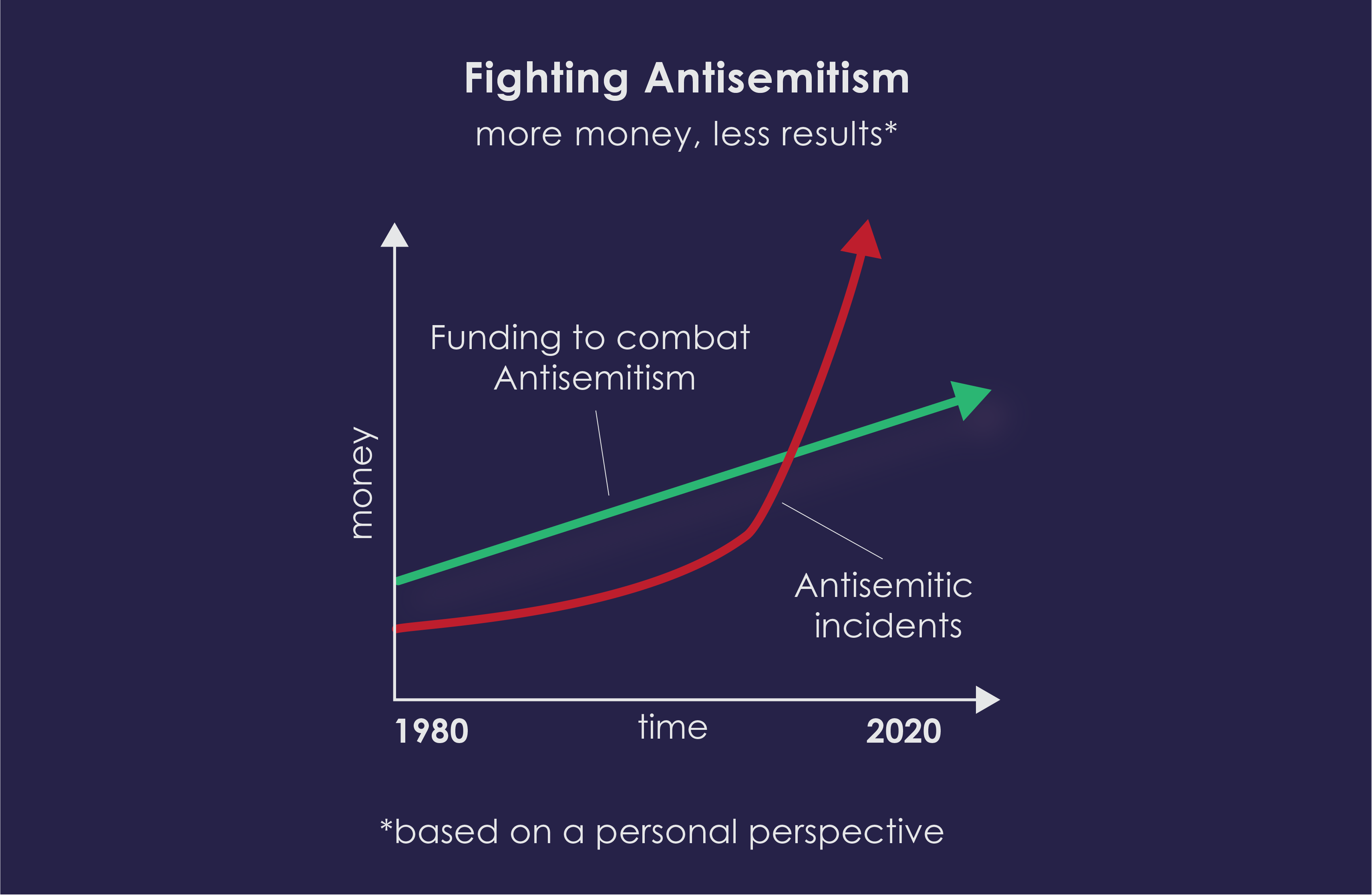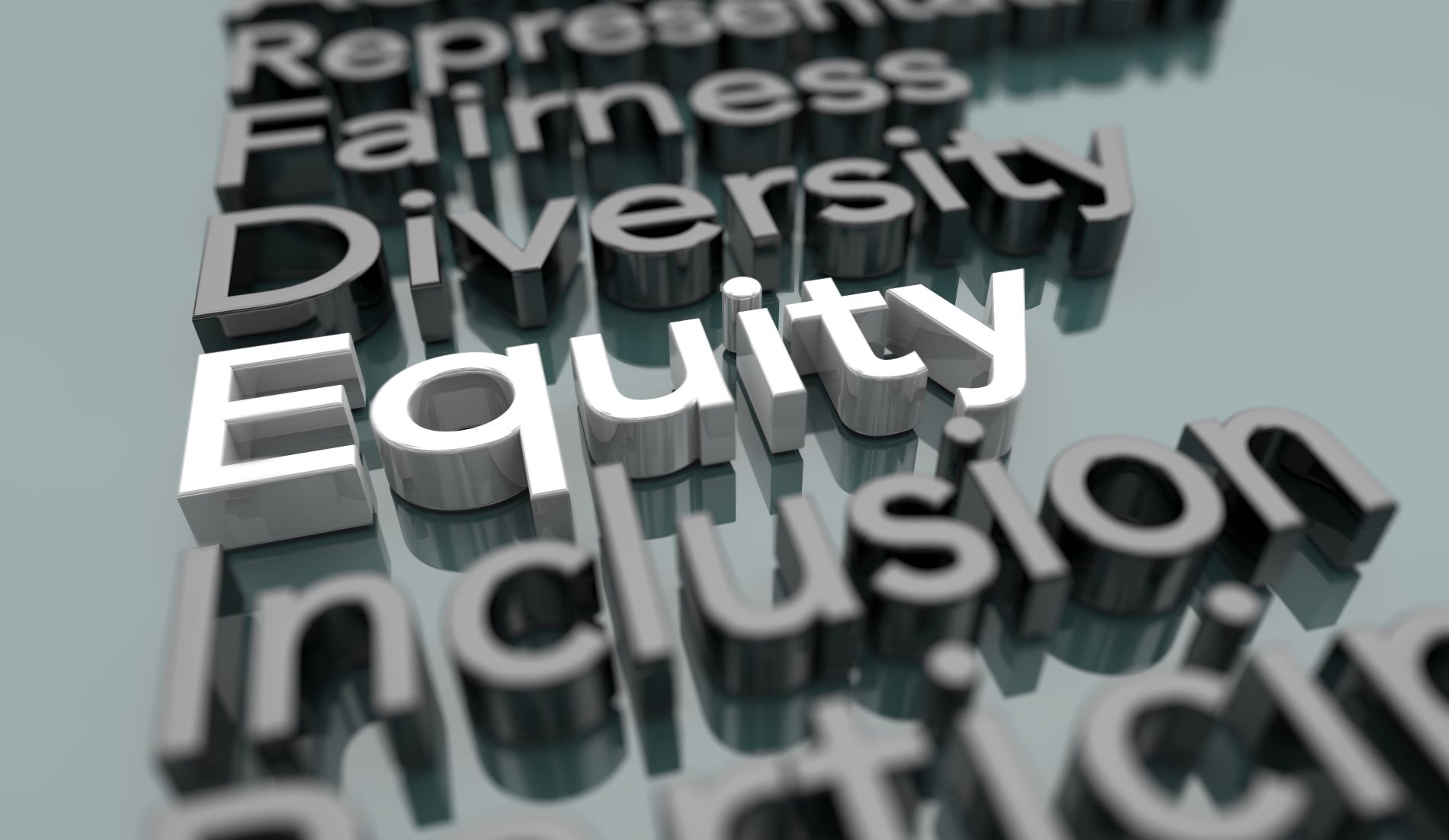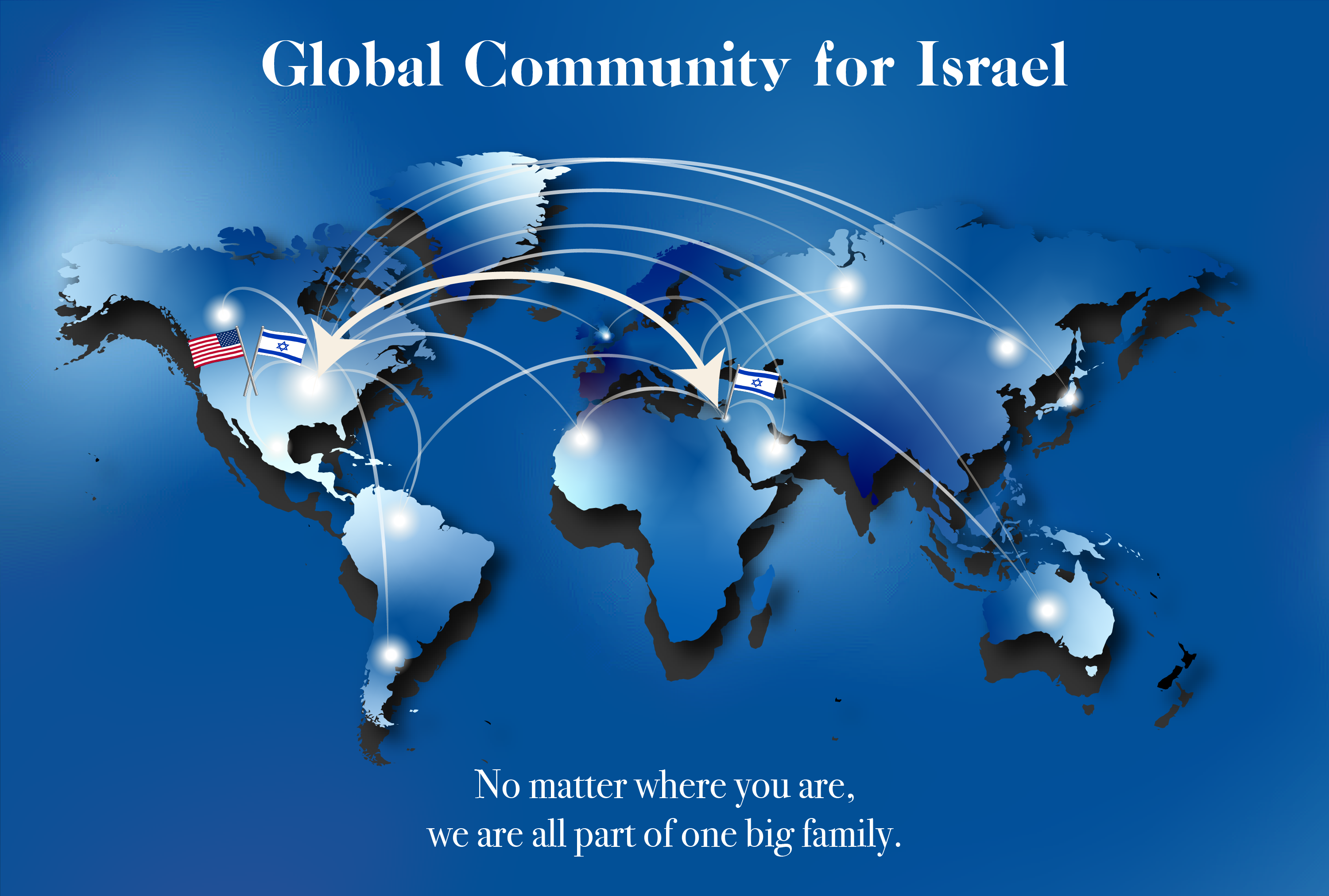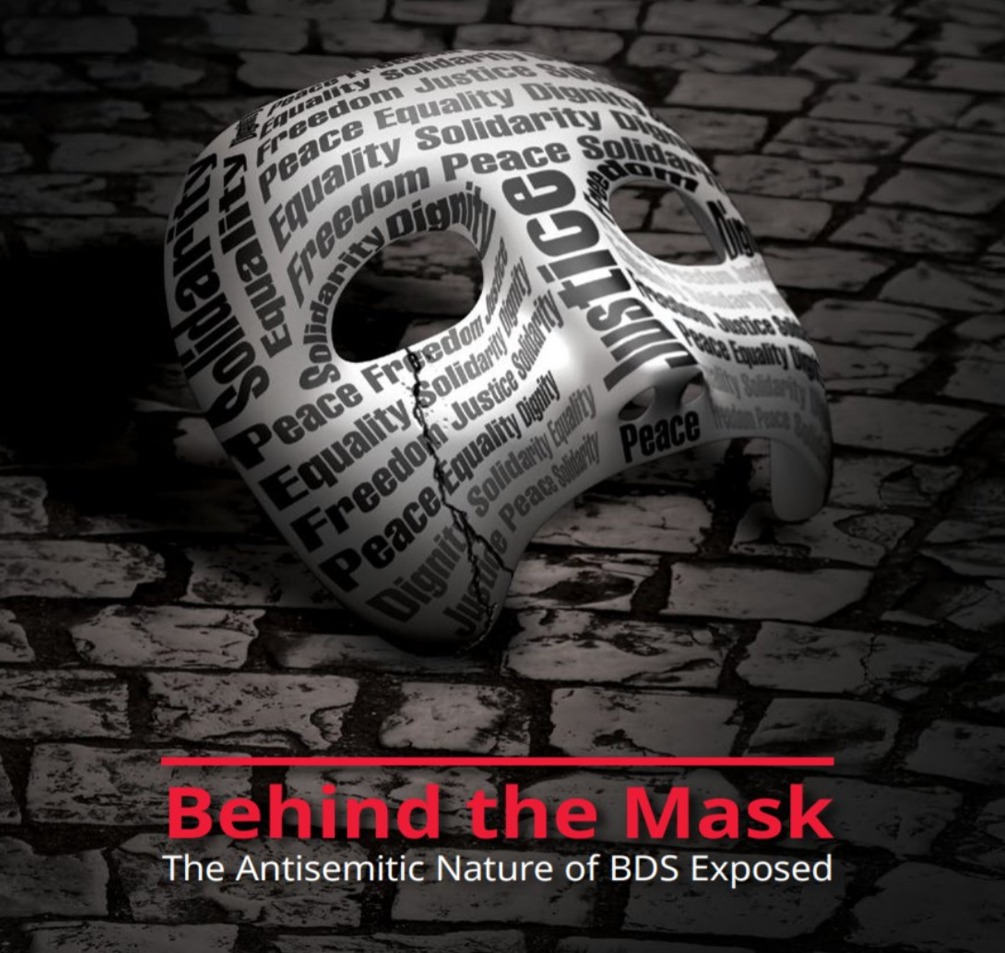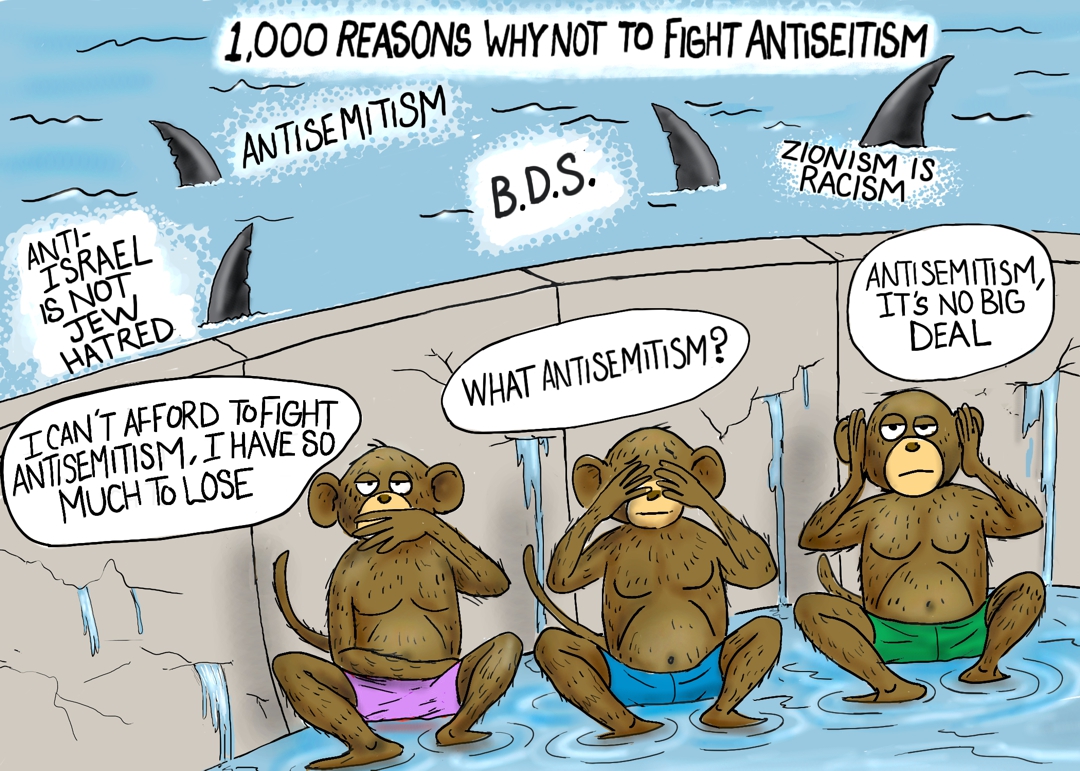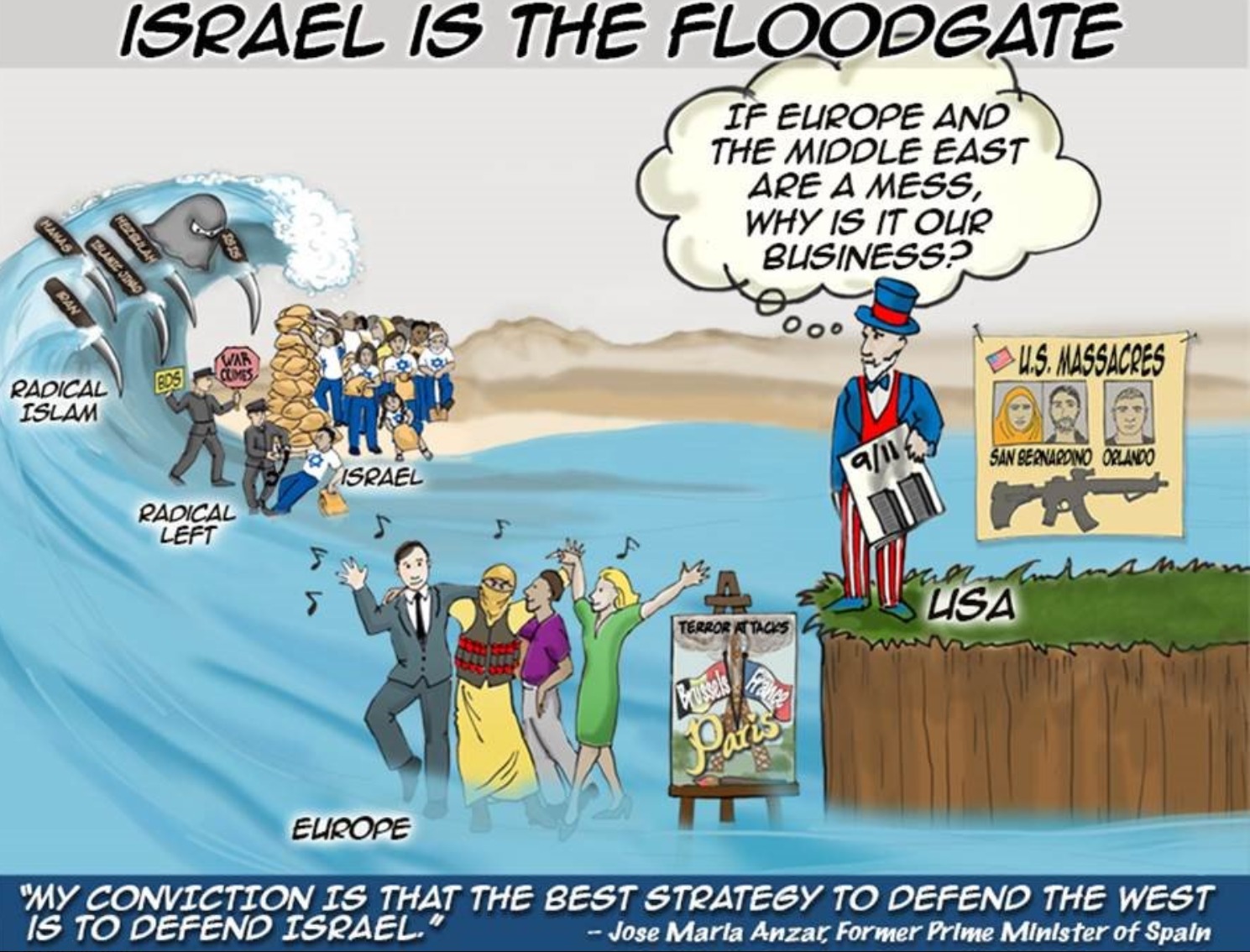This article was originally published in the Jerusalem Post on April 25, 2022, written by Adam Milstein of the Adam and Gila Milstein Family Foundation.
For the past two decades major Jewish organizations have been sounding the alarm bells about the exponential rise of Jew-hatred in America and globally. They have been asking their members to financially support them in the fight against the resurgence of this centuries-old disease.
But while substantially more philanthropic dollars are being funneled to legacy organization for the purpose of fighting Jew-hatred, it is undeniable that antisemitism is continuing to grow in the United States. According to the ADL’s and AJC’s Hate Crime Reports, 2019 and 2020 were, respectively, the highest and third-highest years on record for cases of vandalism, harassment, and assault against Jews in the U.S. since 1979.
For generations, the traditional Jewish organizations have been focused on developing effective programs to promote Jewish continuity, education, leadership, community engagement, and many other social and cultural projects. But given these rising incidents of Jew-hatred in the United States, it’s worth asking whether or not they are as effective in fighting antisemitism, and if not – why.
For these large organizations, it is hard to change and adopt new strategies to combat antisemitism. Many of them disagree as to what is considered antisemitism and what isn’t. As such, they have difficulties on agreeing on policies and action plans to combat this evil.
The legacy groups have created unbelievable redundancy, with dozens of virtually identical organizations operating in silos, mired by conflicting interests and competition for donors.
Why would the large institutions change when very few of their donors demand that they do things different. Most donors, large and small, are giving in order to feel good, to belong to a social network, to interact with relevant business associates, to receive naming opportunities, and to obtain honors, respect, and influence. Making an impact with their donation dollars is a secondary priority for them.
This is why it is so critical that we complement what the legacy organizations are doing with new and different approaches. We need to fight against Jew-hatred by going on the offense, exposing and holding antisemites accountable, and we also need to convince Jewish donors to support impact-oriented projects, out of the box ideas, and innovative initiatives that can move the needle.
While there are no silver bullets, over the past two decades of battling in the trenches, I became acquainted with the unique vision of strategic venture philanthropy, a multi-network collaboration model that generates synergies among philanthropists and the most effective small and medium, startup-like organizations to effectuate real change.
Here is an example: When the Boycott, Divestment and Sanctions (BDS) movement emerged on American campuses some 15 years ago, presenting itself as a human rights organization, many Jewish organizations ignored the fact this movement’s goal was to eradicate the State of Israel and kill its Jewish population. They provided BDS leaders a community platform to spread their hate and invited them to participate in questionable discourse. By doing so, they actually enhanced antisemitism rather than defeating it.
In contrast, a group of venture philanthropists have commissioned several in depth research projects looking into the origins of the BDS movement, the background of its leaders, its funding, and operational methods. One of the projects discovered that the BDS movement was established in 2001 by the major Palestinian terror organizations as a “non-military-front” to destroy the State of Israel based on the methods that brought the collapse of the apartheid regime in South Africa.
Another research project looked into the impact of the BDS movement and demonstrated how it represents the newest iteration of Antisemism. It promotes hate against Jews wherever they are because the Jewish people are inherently connected to the homeland of the Jewish people, the State of Israel. The research showed the BDS radicalizes all the other hate groups, far right, far left, and radical Islamists, and promotes physical violence against Jews.
Once completed, the actionable parts of the research projects were provided to governmental institutions, and drew on the network of nonprofit organizations, in the media, legal, think tanks, and on the ground, willing to work on the same mission, creating synergy and force multiplication. As a result, the BDS movement is known today as a terrorist-affiliated network and the premier promotor of the New Antisemitism. BDS leaders are now often uninvited to universities, they lost tremendous governmental and NGO’s fundings, and many fund-raising platforms have cancelled them.
Strategic venture philanthropy empowers philanthropists, often leaders of their industries, to bring their own unique vision, connections, and experience to contribute much more than just a check. The power of each philanthropist is exponentially increased through a multi-network collaboration model, like in the Los Angeles-based Impact Forum, which we established in 2017. Through the Impact Forum, combined philanthropic strength is leveraged to empower a network of small and mid-size nonprofit organizations—each punching substantially above their weight as they create their own synergies to amplify their impact.
As antisemitism worsens before our eyes, we should complement the traditional, institutions-based philanthropy who ‘know what’s best’ with new out of the box proactive ideas, empowered by strategic venture philanthropists, willing to invest their experience, know how, time, connections, and philanthropy dollars to move the needle.

